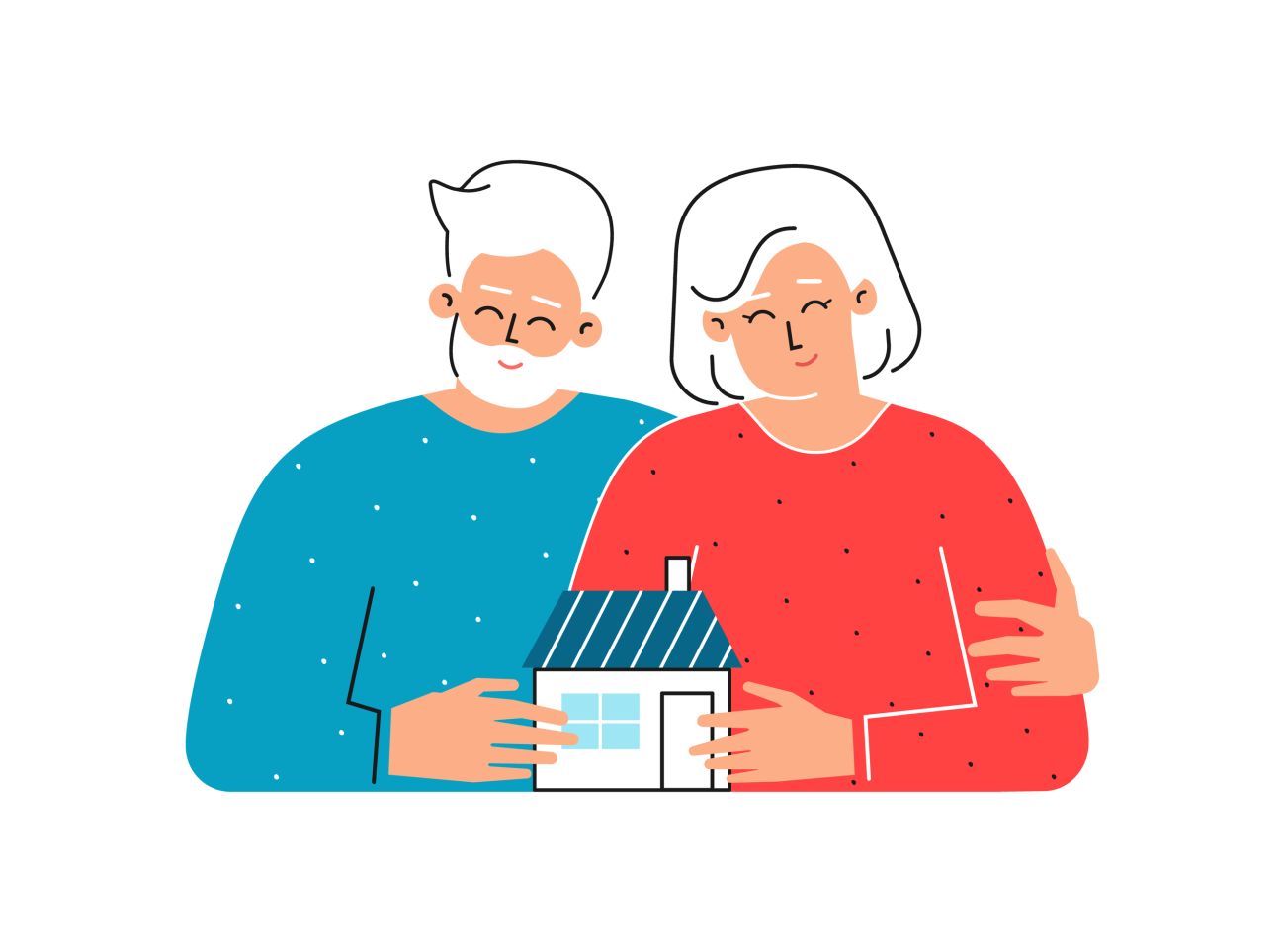For many seniors, monthly cheques from Social Security may be their only form of income during retirement. It’s reported that seniors receive $1,360.13 each month on average from the government. That amount adds up to just over $16,300 per year — and much of that money goes directly to housing costs.1
Given how the cost of living continues to rise and payment amounts remain stagnant, it’s important to find ways to save money on housing. Fortunately, you can find financial help with a search online.
 Olli Turho / Shutterstock
Olli Turho / ShutterstockThere are various programs that help seniors save money on housing in the form of loans, grants, and vouchers. Start an online search to find out who qualifies and how much help you can receive.
To help, here are some programs that can help seniors save on housing this year.
Single Family Housing Repair Loans and Grants
If you’re a low-income senior that owns a home, you may qualify for the Single Family Housing Repair Loans and Grants.
Also referred to as the 504 Home Repair Program, this government program aims to help homeowners repair, improve, or modernize their home. Those who qualify for a loan may also use the money to remove health and safety hazards. The maximum loan you can receive is $20,000, which can be repaid over 20 years with a fixed rate of one percent.2
Seniors can also apply for a grant, which does not have to be paid back in most cases. The grant money must be used to remove health and safety hazards from the property. You can receive a grant worth up to $7,500. The only time a grant must be repaid is if your property is sold in less than three years.3
Instead of utilizing your retirement money to pay for necessary home improvements, you can apply to the 504 Home Repair program. To qualify, you must be a homeowner and currently occupy the house. Applicants are unable to obtain affordable credit elsewhere and have a family income below 50 percent of the area median income.
Seniors are able to apply for a loan or grant all year round. Those applying for a grant must be 62 or older and not be able to repay a repair loan.
Make sure to find out information that applies specifically to your state by researching online.
Low-Income Home Energy Assistance Program
Seniors should never have to worry about whether they can afford to pay their heating or gas bills. With the Low-Income Home Energy Program (LIHEAP), seniors can receive help to pay for their home energy needs.
This program helps pay for costs related to energy bills, energy crisis, weatherization, and energy-related minor home repairs. The agency does not make awards directly to households.
To find out whether you qualify for LIHEAP Energy Assistance, contact a local provider in your area. They will determine whether you fall under the target population, which can vary depending on where you’re located.4
State Level Housing Loan and Grant Programs
Florida’s Elderly Mortgage Assistance Program
Since being launched by the Florida Housing Finance Corporation in 2013, the Elderly Mortgage Assistance Program has helped prevent seniors from losing their homes. The program provides seniors with up to $50,00 as a two-year forgivable loan.
The money can be used towards costs such as:
- Property taxes;
- Homeowner’s insurance;
- Flood insurance, and;
- Homeowners or condominium association dues.
Seniors must have suffered financial hardships due to medical expenses or unemployment to qualify. The circumstances must have led to nonpayment of charges. You must also earn less than 140 percent of the median area income and be able to pay for future property charges.
Ohio’s Senior Financial Empowerment
Seniors with low-to-moderate incomes can apply to the Senior Property Tax Loan. You can receive a loan of up to $6,500 to pay delinquent property taxes and avoid foreclosure. Eligible seniors must be homeowners at least 55 years of age in Cuyahoga County, Ohio to qualify.
So far, the program has provided more than $80,000 to help 18 seniors.5
Section 8 Housing Vouchers
If you’re in need of a place to live or help paying rent, Section 8 Housing Vouchers may be able to help. This government program assists low-come families, the elderly, and disabled people afford housing.
Participants are able to choose where they want to live, as long as it meets the requirements of the program. You’re also not limited to choosing a unit in subsidized housing projects. So, whether you want to live in a single-family home, townhouse, or apartment, it’s up to you.
The owner of your chosen rental must agree for them to rent under the program. The housing subsidy is paid directly to the landlord on behalf of eligible seniors. To be eligible, you must be a U.S. citizen and have a family income that does not exceed 50 percent of the median income in your area.
Public Housing Agencies must provide a 75 percent voucher to applicants whose incomes do not exceed 30 percent of the area median income. Find out what voucher amount you qualify for by applying online.6
Search Online to Cut Down on Housing Costs
Seniors have options when it comes to home affordability. Whether you need help paying for rent, keeping the lights on, or making necessary repairs, there are programs designed to help low-income seniors pay for those expenses.
If you’re in need of financial help related to housing, start an online search. You can find out which programs will fund your specific needs. To find out if you qualify, make sure to read up on the terms or contact a representative to find out more.